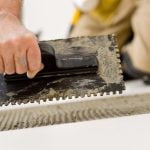Homeowners often wonder, “Are home improvements tax-deductible?” The answer is not a simple yes or no. Understanding the complexities of tax deductions for home improvements can potentially lead to significant savings come tax season. This guide aims to shed light on the intricacies of this topic.
When it comes to enhancing your property, knowing the distinction between repairs and improvements is crucial in determining their tax deductibility. While repairs are typically expenses to maintain your property’s current condition, improvements add value or extend its life. Only certain types of home improvements that meet specific criteria set by the IRS are eligible for tax deductions.
Eligibility for tax deductions on home improvements depends on various factors such as the nature of the improvement, whether it adds value to the property, and if it meets energy efficiency standards. Proper documentation is essential when claiming these deductions. Failing to provide accurate records could result in disqualification or potential audits. Stay tuned as we delve deeper into this important subject throughout this article.
Understanding the Difference Between Repairs and Improvements
Homeowners often wonder whether they can benefit from tax deductions when making improvements to their homes. One key aspect to consider is understanding the difference between repairs and improvements. While both may involve fixing or enhancing parts of your home, they are treated differently in terms of tax deductions.
Repairs are typically considered necessary fixes to restore something to its original condition, such as fixing a leaky roof or replacing broken windows. On the other hand, improvements refer to upgrades that increase the value of your property or prolong its life, like adding a new bathroom or renovating the kitchen. The distinction is important because only certain types of home improvements are eligible for tax deductions.
To determine if your home improvement expenses are tax-deductible, you must meet certain criteria set by the Internal Revenue Service (IRS). Generally speaking, for an expense to qualify for a tax deduction, it must be considered a capital improvement that adds value to your property or prolongs its useful life. Regular maintenance and repairs that simply keep your home in good condition do not usually qualify for tax deductions.
When considering whether a specific home improvement project is tax-deductible, it’s essential to keep detailed documentation of all expenses related to the work done. This documentation may include invoices, receipts, contracts with contractors or service providers, and any permits obtained for the work. Having this paperwork in order will not only help you claim potential tax deductions but also provide evidence in case of an audit by the IRS.
Eligibility Criteria for Home Improvements to Be Tax-Deductible
Residence Requirement
In order for home improvements to be tax-deductible, the property in question must be considered your primary residence. This means that if you are making improvements to a second home or rental property, those expenses would not qualify for tax deductions. The IRS requires that the property must be where you live most of the time for it to be eligible for tax benefits related to improvements.
Capital Improvement
The key distinction between repairs and improvements is crucial when it comes to tax deductions. To qualify as a tax-deductible improvement, the work done on your home must enhance its value or prolong its useful life.
This could include adding a new room, renovating a kitchen, installing energy-efficient appliances, or upgrading heating and air conditioning systems. Regular maintenance or repairs that simply restore the property to its original condition are not considered capital improvements and therefore not eligible for tax deductions.
Timing of Improvements
Another important eligibility criterion for claiming tax deductions on home improvements is the timing of when the work was done. Generally, the improvement expenses must be incurred during the same year you plan to claim the deduction.
However, there are instances where certain expenditures made in previous years can also qualify if they meet specific criteria set by the IRS. It’s essential to keep accurate records of all improvement costs along with receipts and invoices to substantiate your claims when filing taxes.
By understanding these eligibility criteria for home improvements to be tax-deductible, homeowners can take advantage of potential savings while enhancing their living spaces. Remember to consult with a tax professional or accountant when navigating through complex tax laws and regulations related to claiming deductions on home improvements. By following the guidelines set forth by the IRS, individuals can maximize their savings and potentially offset some of the costs associated with making their homes more comfortable and valuable.
Types of Home Improvements That Are Generally Tax-Deductible
Homeowners often wonder whether their home improvements are tax-deductible. While not all home improvements qualify for tax deductions, there are certain types that can help reduce your tax burden. Generally, home improvements that increase the value of your property or make it more energy-efficient are more likely to be eligible for tax deductions.
One common type of home improvement that is typically tax-deductible is the installation of renewable energy systems such as solar panels or wind turbines. The federal government offers a Residential Renewable Energy Tax Credit, which allows homeowners to claim a percentage of the costs of installing these systems as a tax credit. This can result in significant savings on your taxes while also reducing your carbon footprint.
Another type of home improvement that may be tax-deductible is any modifications made for medical reasons or disabilities. This could include adding ramps, handrails, or other accessibility features to your home.
These modifications not only make your home more comfortable and functional but can also potentially qualify for a medical deduction on your taxes. However, it’s essential to keep detailed records and consult with a tax professional to ensure you meet all the eligibility criteria and documentation requirements when claiming these deductions.
In addition to the specific types mentioned above, there are also energy-efficient upgrades like installing energy-efficient windows, doors, insulation, or HVAC systems that may qualify for tax deductions. These improvements not only help save on energy bills but can also result in valuable tax savings.
It’s crucial to keep track of all expenses related to these projects and maintain proper documentation to support your claims when filing taxes. By understanding which types of home improvements are generally tax-deductible and following the necessary guidelines, homeowners can maximize their savings while enhancing their living spaces.
| Types of Home Improvements | Tax-Deductibility |
|---|---|
| Solar Panel Installation | Generally Tax-Deductible (Residential Renewable Energy Tax Credit) |
| Accessibility Modifications | Potentially Tax-Deductible (Medical Expense Deduction) |
| Energy-Efficient Upgrades | May Qualify for Tax Deductions (Energy Efficiency Credits) |
Documentation Required for Claiming Tax Deductions on Home Improvements
When it comes to claiming tax deductions on home improvements, having the right documentation is essential to ensure that you can maximize your savings while staying compliant with tax laws. The Internal Revenue Service (IRS) requires specific paperwork to support your claims for any expenses related to home improvements. Here are some key documents you will need to have in order when claiming tax deductions on home improvements:
- Receipts and Invoices: Save all receipts and invoices from contractors or suppliers for the materials and labor costs associated with the home improvements. These documents serve as proof of the expenses incurred.
- Contracts: Keep copies of any contracts or agreements signed with contractors for the work done on your home. Contracts should outline the scope of work, timeline, cost breakdown, and any warranties provided.
- Permits: If permits were required for the home improvements, make sure to keep copies of these permits as they indicate that the work was done in compliance with local building codes.
Additionally, it is recommended to maintain a detailed record of all communication related to the home improvement projects in case you need to provide further evidence or clarification to the IRS. By having thorough documentation on hand, you can support your tax deduction claims and minimize the risk of audits or penalties.
Remember that accurate record-keeping is crucial when it comes to claiming tax deductions on home improvements. Without proper documentation, you may not be able to substantiate your claims and could face challenges during IRS reviews. Taking the time to organize and store all relevant paperwork can ultimately save you money by ensuring that you are eligible for tax deductions on qualifying home improvement expenses.
How to Calculate the Tax Deductions on Home Improvements
When it comes to home improvements, many homeowners wonder if they are tax-deductible. Understanding how to calculate the tax deductions on home improvements can provide valuable insight into maximizing potential savings. It is essential to note that not all home improvements qualify for tax deductions, so knowing what qualifies and how to calculate it is crucial.
One key factor in calculating tax deductions for home improvements is determining whether the improvement is a repair or an improvement. Repairs are typically considered maintenance work, while improvements add value to the property or prolong its life. Only improvements that meet specific criteria set by the IRS are eligible for tax deductions.
To calculate the tax deductions on eligible home improvements, homeowners need to keep thorough records of all expenses related to the improvement project. This includes receipts for materials, labor costs, permits, and any other associated expenses. By accurately tracking these expenses, homeowners can determine the total amount spent on qualifying home improvements and use this information to claim tax deductions when filing their taxes.
| Expense | Amount |
|---|---|
| Materials | $2,500 |
| Labor Costs | $1,200 |
| Permits | $300 |
| Total Expenses | $4,000 |
Potential Risks and Consequences of Claiming Improper Tax Deductions
Understanding the Risks of Improper Tax Deductions
When it comes to claiming tax deductions on home improvements, it is crucial to understand the risks associated with improper claims. One of the main risks is that if you incorrectly claim a deduction for a home improvement that does not qualify, you may face penalties from the Internal Revenue Service (IRS).
These penalties can range from fines to additional taxes owed or even audits of your tax returns. It is essential to ensure that any deductions you claim are legitimate and supported by proper documentation.
Consequences of Claiming Improper Tax Deductions
Claiming improper tax deductions on home improvements can have serious consequences for homeowners. In addition to potential penalties from the IRS, you may also face legal repercussions if your claims are found to be fraudulent. This can result in criminal charges and further financial implications. Moreover, incorrect deductions can also trigger audits of your tax returns, leading to additional stress and potential costs in legal fees.
Avoiding Risks and Ensuring Compliance
To avoid the risks and consequences of claiming improper tax deductions on home improvements, homeowners should make sure they fully understand the eligibility criteria for deductions. Keeping detailed records and receipts for all home improvement expenses is essential for providing evidence in case of an audit.
Additionally, seeking advice from a tax professional or accountant can help ensure compliance with tax regulations and maximize legitimate deductions while avoiding any potential risks or consequences. By taking these precautions, homeowners can confidently claim tax deductions on eligible home improvements without fear of penalties or legal issues.
Tips for Maximizing Tax Savings Through Home Improvements
When it comes to maximizing tax savings through home improvements, there are several strategies that homeowners can employ to take advantage of potential tax deductions. One key tip is to keep detailed records of all home improvements and repairs, as well as any associated expenses. This documentation will be essential when it comes time to claim tax deductions, as the IRS may require proof of the work done and costs incurred.
Another important tip for maximizing tax savings through home improvements is to ensure that the improvements made are eligible for tax deductions. As mentioned in the previous sections, not all home improvements are tax-deductible, so it is crucial to understand the eligibility criteria set by the IRS. Generally, improvements that increase the value of your home or prolong its life are more likely to qualify for tax deductions.
Furthermore, consulting with a tax professional or accountant can also help homeowners navigate the complexities of claiming tax deductions on home improvements. These professionals can provide valuable guidance on what can be claimed as a deduction, how to calculate the deductions accurately, and any potential risks or consequences of claiming improper deductions. By seeking professional advice, homeowners can ensure that they are maximizing their tax savings while staying compliant with IRS regulations.
Conclusion
In conclusion, the question of whether home improvements are tax-deductible is a complex one that requires a thorough understanding of the difference between repairs and improvements, as well as meeting specific eligibility criteria. While repairs are generally not tax-deductible, certain types of home improvements can qualify for tax deductions if they meet certain criteria set by the IRS.
To maximize tax savings through home improvements, it is crucial to keep detailed documentation of all expenses related to the improvements. This includes receipts, invoices, and any other relevant documents that support your claim for tax deductions. Additionally, calculating the exact amount of tax deductions on home improvements can be tricky, so seeking advice from a tax professional or accountant is recommended to ensure accuracy.
It’s important to note that claiming improper tax deductions on home improvements can have potential risks and consequences, such as penalties or audits from the IRS. Therefore, it is essential to understand the rules and regulations surrounding home improvement tax deductions to avoid any issues. Overall, while home improvements can potentially lead to tax savings, it’s crucial to navigate the process carefully and make informed decisions to avoid any potential pitfalls.
Frequently Asked Questions
What Does the IRS Consider Home Improvements?
The IRS considers home improvements to be enhancements made to a home that prolong its useful life, increase its value, or adapt it to new uses. These can include remodeling, adding new features like a pool or solar panels, or upgrading existing systems such as HVAC.
Is a Bathroom Remodel Tax Deductible?
Generally, a bathroom remodel is not tax deductible as it is considered a personal expense and not related to improving the functionality of your home for medical purposes. However, certain aspects of the remodel that improve accessibility for disabled individuals might qualify for tax deductions.
Are Improvements to Home Office Tax Deductible?
Improvements to a home office are typically tax deductible if they are directly related to conducting business activities from that space. This can include renovations like adding built-in shelving, upgrading internet connectivity, or installing dedicated workstations. It’s important to keep detailed records and consult with a tax professional for guidance on deductibility.

I’m thrilled to have you here as a part of the Remodeling Top community. This is where my journey as an architect and remodeling enthusiast intersects with your passion for transforming houses into dream homes.





